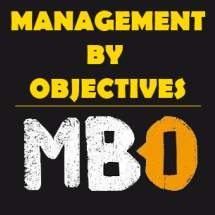Role of Chief Executive Officer in Organization | Qualities
Table of Contents
Role of Chief Executive Officer in Organization
The Chief Executive Officer (CEO) is designated as the Managing Director, or President or General Manager or Chairman or Executive Director. The CEO is the person responsible for the functioning of the entire organization. He cannot really delegate all his or her strategic responsibilities to anyone else, despite the fact that the board of directors and other officers can play a major role in this process.

Effect of Gresham’s Law of Planning: The CEO is normally involved in day-to-day and routine activities and consequently is left with a little time for broader and important considerations. As such, the CEO is always faced with the effects of Gresham’s Law of Planning, which states that, “Routine drives out creativity.” A top priority requirement of the CEO is to allocate time for strategic responsibilities.
The CEO is expected to play a crucial and multiple roles in formulating and implementing mission, objectives, policies and strategies. His multiple roles include: organization builder organization leader, sharing success, executive selection, and path to the top.
CEO as Organization Builder
The CEO has the responsibility for organization building through organizational change. Organizational building strategies depend on the market opportunities, expansion and diversification. Organizational changes should be made gradually and regularly and assignment of responsibilities for the organization should be permanent, not situational.
People resist change due to:
- parochial self-interest,
- misunderstanding and lack of trust,
- different assessments,
- low tolerance for change.
CEO as Organization Leader
The CEO must have a base for leadership. A leader must have support from both within and outside the organization, in addition to personal skills. A leader must have the skill of motivation to manage. Which includes
- favorable attitude towards those in positions of authority, such as supervisors,
- desire to engage in competition, especially with peers,
- desire to assist oneself and take charge,
- desire to exercise power and authority over others, particularly subordinates,
- desire to behave in a distinctive and different way, which involves standing out from the crowd,
- sense of responsibility in carrying out the numerous routine duties associated with managerial work.
Success Sharing by CEO
Monitoring, sponsoring and helping others along the road to success, is an important activity of CEO. The CEO has to help the others both within and outside their organization along the road to success in various ways like training, coaching, assisting, informing, writing letters of recommendations etc. Managers at higher levels spend more time in monitoring or sponsoring the subordinates.
Executive Qualities of CEO
Personalities of successful CEOs tend to vary considerably, but they also have some commonalities. The qualities of CEOs are:
1. Knowing the strengths and spend most of their time in performing activities in which they are strong.
2. Know how to manage their time.
3. Satisfy the board of directors and shareholders.
4. Intuitor: A creative, artistic person who deals well with ideas, theories and innovations.
5. Thinker: Highly, organized and efficient with a mind like a calculator.
6. Feeler: Sentimental, loyal and true blue; thrives on personal relationships.
7. Sensor: Restless, driving doer, a frequently impatient, tireless competitor.
8. Motivated by power and ability to make things happen.
9. Comfortable with a wide range of people, but prefers casual associates.
10. A high energy level.
11. Immune to stress-related diseases.


